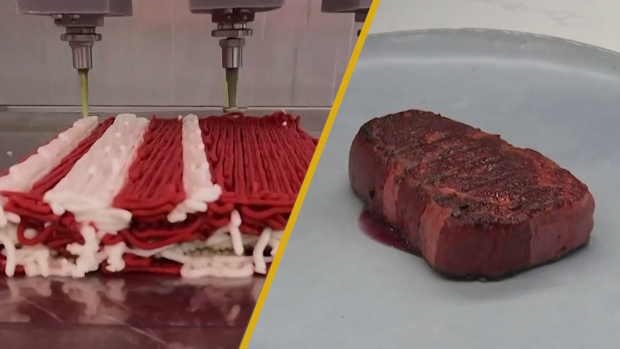
Breaking News
 EXCLUSIVE: "The HUGE Elephant In The Room Is Actually What Jeffrey Epstein Was Best At..."
EXCLUSIVE: "The HUGE Elephant In The Room Is Actually What Jeffrey Epstein Was Best At..."
 EXCLUSIVE INTERVIEW: Republican Candidate For Texas Governor "Doc" Pete Chambers Joins...
EXCLUSIVE INTERVIEW: Republican Candidate For Texas Governor "Doc" Pete Chambers Joins...
 Epstein Files Trigger Political Fallout Across Europe
Epstein Files Trigger Political Fallout Across Europe
 Conjoined twin 'influencers' who have gained more than 280,000 followers with their intimate
Conjoined twin 'influencers' who have gained more than 280,000 followers with their intimate
Top Tech News
 How underwater 3D printing could soon transform maritime construction
How underwater 3D printing could soon transform maritime construction
 Smart soldering iron packs a camera to show you what you're doing
Smart soldering iron packs a camera to show you what you're doing
 Look, no hands: Flying umbrella follows user through the rain
Look, no hands: Flying umbrella follows user through the rain
 Critical Linux Warning: 800,000 Devices Are EXPOSED
Critical Linux Warning: 800,000 Devices Are EXPOSED
 'Brave New World': IVF Company's Eugenics Tool Lets Couples Pick 'Best' Baby, Di
'Brave New World': IVF Company's Eugenics Tool Lets Couples Pick 'Best' Baby, Di
 The smartphone just fired a warning shot at the camera industry.
The smartphone just fired a warning shot at the camera industry.
 A revolutionary breakthrough in dental science is changing how we fight tooth decay
A revolutionary breakthrough in dental science is changing how we fight tooth decay
 Docan Energy "Panda": 32kWh for $2,530!
Docan Energy "Panda": 32kWh for $2,530!
 Rugged phone with multi-day battery life doubles as a 1080p projector
Rugged phone with multi-day battery life doubles as a 1080p projector
 4 Sisters Invent Electric Tractor with Mom and Dad and it's Selling in 5 Countries
4 Sisters Invent Electric Tractor with Mom and Dad and it's Selling in 5 Countries
World's largest lab-grown steak unveiled by Israeli firm

The largest lab-grown steak yet produced has been unveiled by the Israeli company MeaTech 3D, weighing in at nearly 4oz (110 grams).
The steak is composed of real muscle and fat cells, derived from tissue samples taken from a cow. Living bovine stem cells were incorporated into "bio-inks" that were then placed in the company's 3D printer to produce the steak. It was then matured in an incubator, in which the stem cells differentiated into fat and muscle cells.
Companies across the world are racing to produce cell-cultured meat, arguing that creating meat without raising and slaughtering livestock is better for the environment, animal welfare and potentially health.
Sharon Fima, CEO at MeaTech, said: "The breakthrough is the culmination of over one year's efforts in our cellular biology and high-throughput tissue-engineering processes, as well as our precision bioprinting technology. We believe we have placed ourselves at the forefront of the race to develop high-end, cell-based meat products." Cell lines for pork and chicken are also being developed, he said.
The company said it aimed to produce cultured meat at the same cost as conventional meat. But the steaks will not appear on diners' plates soon. The company's first venture into the market will be to sell the cultured fat as an ingredient for other products, with a pilot plant planned for 2022.
"The MeaTech announcement marks an exciting step forward in terms of the complexity and sheer size of a cultivated steak," said Seren Kell at the Good Food Institute (GFI) Europe. "3D printing enables companies to create more sophisticated 'whole cut' products which can authentically recreate the taste, texture and mouthfeel of conventional meat."



